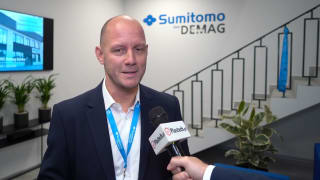 ENGEL has many years of experience in injection moulding and the automation of injection-moulding processes which are essential success factors when it comes to the cost-efficient production of large quantities of FRP components. At its Centre for Lightweight Composite Technologies in St. Valentin in Austria, ENGEL collaborates intensively with customers, partners and research institutions to accelerate the industrialisation of new processes. “Especially in lightweight composite engineering, it is vital for us as the machine tool manufacturer to collaborate closely with OEMs and tier suppliers,” emphasises Peter Egger, Division Manager of the Centre for Lightweight Composite Technologies. “It guarantees that we keep our fingers constantly on the pulse, steer the right path, and customise our machines and systems to meet the specific requirements of industries such as automotive, teletronics or sporting goods.”
ENGEL has many years of experience in injection moulding and the automation of injection-moulding processes which are essential success factors when it comes to the cost-efficient production of large quantities of FRP components. At its Centre for Lightweight Composite Technologies in St. Valentin in Austria, ENGEL collaborates intensively with customers, partners and research institutions to accelerate the industrialisation of new processes. “Especially in lightweight composite engineering, it is vital for us as the machine tool manufacturer to collaborate closely with OEMs and tier suppliers,” emphasises Peter Egger, Division Manager of the Centre for Lightweight Composite Technologies. “It guarantees that we keep our fingers constantly on the pulse, steer the right path, and customise our machines and systems to meet the specific requirements of industries such as automotive, teletronics or sporting goods.”In many projects, ENGEL assumes overall responsibility as general contractor of the manufacturing cell, even if individual components are produced jointly with partners. In addition to the injection-moulding machine, integrated system solutions can include automation and process technologies, moulds and other peripheral systems as well as upstream and downstream work processes such as preform production or component assembly. “
The demand for integrated solutions from a single source is increasing,” says Christian Wolfsberger, Business Development Manager Lightweight Composites at ENGEL. The reasons for this are firstly, the degree of process integration continues to rise, leading to greater complexity of composite processes, and secondly, any potential efficiency can only be fully developed when all units are perfectly coordinated and optimally harmonised.
The ENGEL Centre for Lightweight Composite Technologies focuses on all composite technologies currently in demand as well as advanced technologies ranging from HP-RTM and SMC, the processing of semi-finished thermoplastic products such as thermoplastic fabric and tapes, through to reactive technologies such as in-situ polymerisation (T-RTM).
organomelt launched in automotive series production
One highlight being presented at ENGEL’s exhibit in Hall 4 is the processing and functionalisation of continuous-fibre-reinforced thermoplastic semi-finished products (thermoplastic fabric) using the ENGEL organomelt process. The first major series applications of this technology in the automotive industry will be launched shortly. It was developed at ENGEL’s Centre for Lightweight Composites Technology and optimised for series production. ENGEL supplied two well-known tier suppliers with an integrated system. This technology is of particular interest to the automotive industry due to the use of thermoplastics, which significantly simplifies the recycling of production waste as well as end-of-life components.Both of the recently delivered systems clearly show two distinct trends. Firstly, the additional integration of insert technology. In one of the applications, a large quantity of metal inserts is overmoulded directly in the organomelt process. Secondly, the process involves thin-walled thermoplastic fabric with wall thicknesses of only 0.5 to 0.6 mm. This places different demands on the process than thicker materials. The heated semi-finished products must be processed very quickly so that they do not cool too much before shaping.




